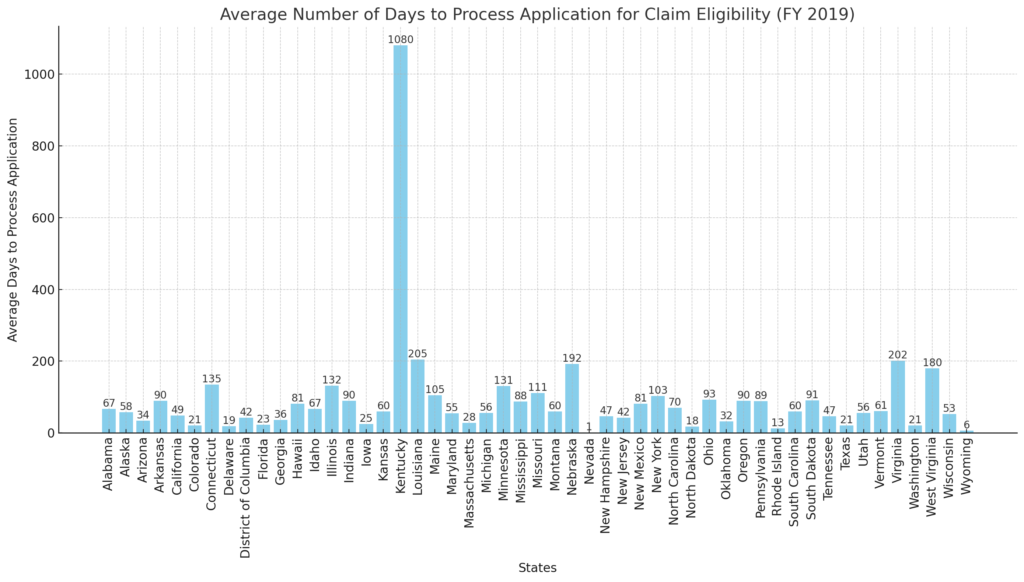Understanding the Timeline for Crime Victims Compensation
Navigating the aftermath of victimization can be overwhelming, particularly when dealing with the financial implications. Crime victims’ compensation programs aim to provide financial assistance. However, the application process and waiting period can be lengthy, raising questions about the timeframe. Our blog post explores the factors influencing the duration of receiving crime victims’ compensation and provides insights into expediting the process.
Understanding the Crime Victims’ Compensation Process in the United States
Crime victims’ compensation programs offer financial assistance to violent crime victims and their families. These programs are administered at the state level to help alleviate the economic burden of medical expenses, counseling, lost wages, and other crime-related costs.
While eligibility criteria and application procedures vary across states, the underlying principle remains consistent: to provide a safety net for victims struggling with the aftermath of a crime. Understanding the nuances of these programs is important for those seeking financial relief and support during challenging times.
The Eligibility Criteria for Applicants
Individuals must generally meet specific eligibility criteria for financial assistance through crime victims’ compensation programs. These criteria aim to ensure that the program’s resources are provided to those who genuinely require assistance as victims of violent crimes.
Applicants must demonstrate that they were victims of a crime that falls under the program’s definition of a violent crime, such as assault, domestic violence, sexual assault, or homicide. Cooperation with law enforcement is typically a prerequisite, highlighting the importance of reporting the crime and actively participating in the investigation and prosecution.
Furthermore, applicants must submit their compensation claims within the stipulated timeframe, often within a year of the crime, although exceptions may exist. Meeting these eligibility requirements is necessary for consideration for financial assistance.
Navigating the Application Steps for Victims’ Compensation
Applying for victims’ compensation usually involves several steps to ensure a thorough claim evaluation. Applicants must obtain the necessary application forms online or through designated victim service agencies. Completing these forms accurately and thoroughly and providing all requested details about the crime and the incurred expenses is crucial.
After completing the application forms, applicants must gather supporting documentation to substantiate their claims. This documentation typically includes police reports, medical bills, proof of lost wages, and other relevant records.
Preparing Your Application: Required Documentation
Gathering the necessary documentation while navigating the aftermath of a crime can seem daunting. However, providing comprehensive documentation is essential for a successful application process.
A detailed police report serves as the foundation for the compensation claim. This report should include information about the crime, such as the date, time, location, and individuals involved. Medical bills and receipts are often required when seeking reimbursement for medical expenses. Gathering all relevant documentation related to medical treatment, including hospital stays, doctor’s visits, therapy sessions, and prescription medications, is essential.
Other supporting documents may include:
- Proof of lost wages, such as pay stubs or employer verification
- Documentation of counseling or therapy expenses
- Funeral expenses, if applicable
- Any other receipts or documentation related to crime-related expenses
Submission and Follow-Up: What to Expect
After compiling all necessary documentation, applicants must submit their completed application packets to the designated state agency responsible for victim compensation. The application can be completed online, mailed, or hand-delivered, depending on the state’s preferred method.
Upon receiving the application, the agency reviews it to ensure it is complete and meets all eligibility requirements. Applicants typically receive a receipt notification and can expect updates throughout the process.
The agency may contact applicants for additional information or clarification during the review. Frequent follow-ups demonstrate diligence and can facilitate the process, ensuring a more efficient review of their compensation claims.
Timeframe for Receiving Compensation
The time it takes to receive compensation for crime victims varies considerably based on various factors. After submitting a claim, a typical waiting period follows as the state agency reviews the case and verifies the information provided.
Several factors influence the duration, including the case’s complexity, the applicant’s responsiveness in providing documentation, and the state agency’s efficiency in processing claims.

Factors Influencing the Duration of the Compensation Process
Several factors can influence the time it takes to receive reimbursement through victims’ compensation programs. Case complexity plays a significant role; straightforward cases with clear-cut eligibility and readily available documentation tend to be processed faster.
Conversely, cases involving extensive injuries, ongoing litigation, or intricate financial situations may require more time for investigation and verification. The applicant’s responsiveness in providing complete and accurate information and supporting documentation is crucial in expediting the process. Delays in submitting requested materials can prolong the review and decision-making timeframe. Additionally, each state’s administrative capacity, staffing levels, and application volume can contribute to variations in processing durations.
Challenges in the Compensation Process and How to Address Them
While crime victims’ compensation programs provide crucial financial relief, the process can present challenges. Delays are common, often caused by application backlogs, insufficient staffing, or the need for additional information from applicants.
Applicants may face challenges navigating the application process, understanding eligibility criteria, or gathering the required documentation. Ineligibility or insufficient evidence may also result in a denial.
Common Reasons for Delays and Denials
Several factors can contribute to delays or denials in crime victims’ compensation cases. Incomplete applications, such as missing documentation or inaccurate information, often delay processing.
Additionally, inconsistencies in the victim’s statement or discrepancies between the provided information and official records can raise concerns and prolong the investigation. In some instances, the victim’s behavior or involvement in illegal activities during the crime may impact their eligibility or result in denials.
Furthermore, failure to cooperate fully with law enforcement or adhere to program requirements can lead to complications in the reimbursement process. To minimize delays and increase the likelihood of approval, victims must submit accurate and complete information, cooperate with authorities, and comply with program guidelines.
Tips for Expedited Processing and Successful Claims
Consider these tips to navigate the compensation process more effectively and expedite the timeline: Respond to requests for information promptly, ensuring clear and accurate answers. Open communication with the assigned caseworker or agency representative helps address concerns and prevents unnecessary delays. Consider seeking guidance from victim advocates or legal professionals for assistance in navigating the complexities of compensation programs.
Understanding the specific state program’s eligibility criteria and documentation requirements is also key. Gathering all required documentation, including police reports, medical records, and financial statements, before applying streamlines the process.
Maintaining organized records and copies of all submitted documents allows smooth follow-ups or inquiries. Remember, persistence and a clear understanding of the process can increase the likelihood of receiving timely compensation.
The time it takes to get crime victims’ compensation can vary based on factors like state regulations, the completeness of documentation, and unforeseen challenges. Understanding the eligibility criteria, submitting all required documents, and following up will help speed up the process. While processing times vary, being proactive and following guidelines can help you make successful and timely claims. It’s critical to anticipate common challenges, be aware of potential delays, and seek assistance to navigate this process effectively and secure the compensation you deserve.
Frequently Asked Questions
What is the first step in applying for compensation for crime victims?
The first step in applying for victim compensation is to contact your state’s attorney general’s office or a victim service agency to obtain the necessary application forms and information about the application process.
What documents are required to apply for crime victims’ compensation?
To apply for crime victims’ compensation, you’ll need a police report, medical bills, proof of lost wages, and any receipts for crime-related expenses.
Why do crime victims’ compensation claims get delayed or denied?
Delays or denials often occur due to incomplete applications, missing documentation, inconsistencies in statements, or failure to cooperate with law enforcement.
How can I expedite my crime victims’ compensation claim?
You can expedite your claim by submitting complete and accurate information, responding promptly to requests, and maintaining regular communication with the agency.
